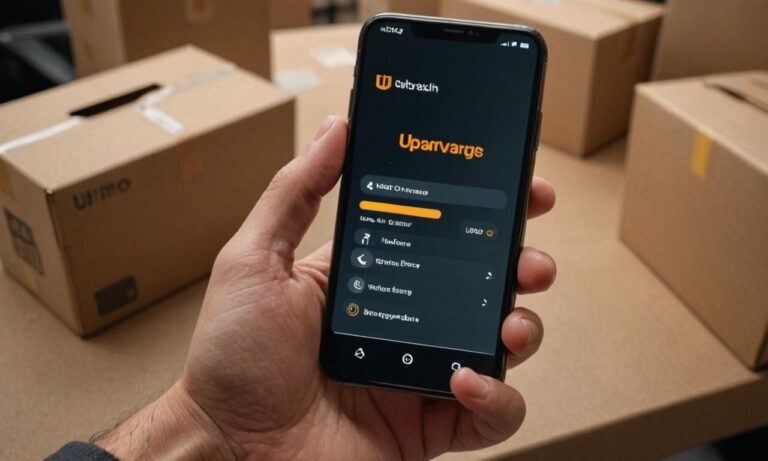In this article, I delve into the growing problem of UPS text scams, including delivery fee scams, package redirection scams, and other deceptive tactics used by scammers. Learn why it’s crucial to stay informed and protect yourself from these fraudulent schemes.
Concerned, I am, about the rise in UPS text scams targeting unsuspecting individuals.
In my experience, these scams have become increasingly sophisticated, exploiting our reliance on package deliveries and our trust in well-known brands like UPS. It is essential that we, as consumers, remain vigilant and educated about these deceptive practices to safeguard our personal information and financial well-being.
How UPS Text Scams Use Social Engineering and Urgency Tactics
Scammers, crafty they are, in their use of social engineering techniques to manipulate victims. They create a false sense of urgency, pressuring you to act quickly without thinking. Often, they direct you to a spoofed website that appears legitimate, tricking you into revealing sensitive information. Be wary of unexpected alerts claiming issues with your package delivery.
As Jedi Master Yoda once said,
“In a dark place we find ourselves, and a little more knowledge lights our way.”
By educating ourselves about these tactics, we can better protect ourselves from falling victim to UPS text scams.
Common Types of UPS Text Scams: Delivery Fees, Prizes, and Redirections
Several common UPS text scams, there are, that you should be aware of:
Legitimate, these scams are not. Trust your instincts, you must, and verify any suspicious requests directly with UPS using known contact information.
Identifying Fraudulent UPS Text Messages and Smishing Attacks
Fraudulent text messages, also known as smishing attacks, are a common tactic used in UPS phishing scams. These fraudulent SMS messages often contain links to a fake UPS website designed to steal your personal information.
To identify fraudulent UPS texts, look for the following red flags:
The Risks of Falling for UPS Text Scams: Identity Theft and Financial Loss
Falling for fake delivery notifications can have severe consequences. Scammers may use your information to steal your identity, steal money from your accounts, or make fraudulent purchases. They may also sell your personal information and payment card details on the dark web, leading to long-term financial and security risks.
Jedi wisdom teaches us,
“Once you start down the dark path, forever will it dominate your destiny.”
By falling for UPS text scams, you may unknowingly open the door to identity theft and financial loss, which can have lasting effects on your life.
Protecting Yourself from UPS Text Scams: Tips and Best Practices
To protect yourself from bogus delivery claims, imposter texts, and deceptive package alerts, follow these tips:
Remember,
“Your focus determines your reality.”
By staying focused on protecting your personal information and being cautious of unsolicited messages, you can significantly reduce your risk of falling victim to UPS text scams.
Verifying Legitimate UPS Communications: Contact Information and Short Codes
To ensure you are communicating with UPS through legitimate channels, use the following contact information:
| Contact Method | Details |
|---|---|
| UPS Customer Support | 1-800-742-5877 |
| Valid UPS Short Codes | 94601, 69877, 48515, 52892 |
| Valid UPS Phone Number | 1-833-242-1931 |
| Valid UPS Email | [email protected], [email protected] |
If a message claiming to be from UPS does not originate from one of these verified sources, it is likely a scam. Trust in the Force, and always verify before acting on any unsolicited communication.
In conclusion, staying informed and vigilant is crucial in protecting ourselves from the growing threat of UPS text scams. By understanding the tactics used by scammers, identifying red flags, and following best practices for verifying legitimate communications, we can safeguard our personal information and financial well-being. Remember, “Do. Or do not. There is no try.” Take action to protect yourself, and together we can fight back against these deceptive practices.
See also:
- Beware of Snapchat Cash App Scams: Protect Your Money and Account
- Beware of Norton Email Scams: Protect Your Money and Personal Information
- Beware the Meta Business Suite Message Scam: Don’t Fall for Fake Warning Messages
- How to Spot and Avoid Apple Pay Scams: Protecting Your Money
- Beware of Instacart Scams: Protecting Customers and Shoppers






